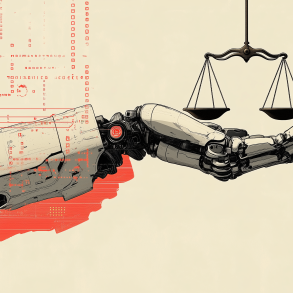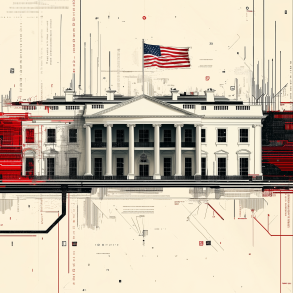A New Survey from Collibra Sheds Light on How Tech Decision-Makers Are Thinking About AI Regulation
Collibra, a leader in data intelligence, has released findings from a new Harris Poll survey involving over 300 U.S. adults aged 21 and older who are full-time employees in roles related to data management, privacy, and AI decision-making. The survey reveals that a striking 99% of respondents recognize the need for AI regulation in the United States, with many expressing skepticism about the government’s current approach to AI oversight.

“Without regulations, the U.S. will lose the AI race long term,” stated Collibra’s co-founder and CEO, Felix Van de Maele. “While AI innovation continues to advance rapidly, the lack of a regulatory framework puts content owners at risk, and ultimately will hinder the adoption of AI.”
The survey indicates strong support among decision-makers for the U.S. government to revise copyright laws to safeguard against AI impacts, with 84% backing this measure. Additionally, 81% believe that major tech companies should compensate individuals for using their data in AI training models. Support is also high for both federal (76%) and state (75%) regulations to guide the development of AI technology.
Globally, IDC projects that 60% of governments will implement a risk management strategy in shaping AI and generative AI policies by 2028. The European Union is at the forefront of AI regulation with its AI Act, the first legal framework addressing AI, which officially became law on August 1st. This groundbreaking act seeks to mitigate AI risks and provide developers with clear guidelines and responsibilities.
Van de Maele suggests that the U.S. could benefit from observing the EU’s approach, balancing necessary regulations with the need to foster innovation. Collibra’s survey highlights key concerns driving the demand for AI regulation in the U.S., including privacy issues (64%), safety and security risks (64%), misinformation (57%), and ethical use and accountability (57%).
On a brighter note, the survey reveals that nearly 90% of decision-makers have significant trust in their companies’ strategies for directing AI’s future. Additionally, 75% agree that their organization emphasizes AI training and upskilling, with those at larger companies (1,000+ employees) more likely to agree than those at smaller firms (87% vs. 55%).
Van de Maele added,
As we look to the future, we need our governments to set clear and consistent rules while also creating an environment that enables innovation and bolsters data quality and integrity.”









